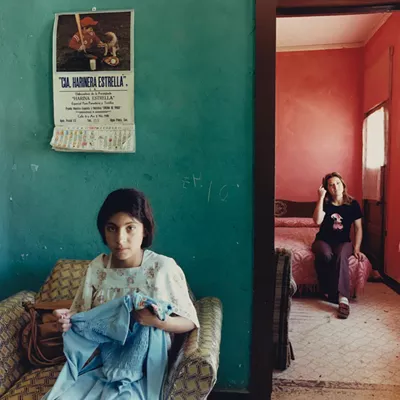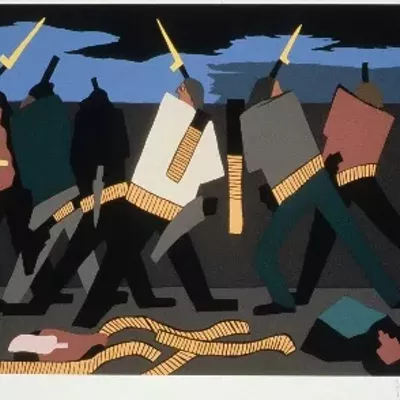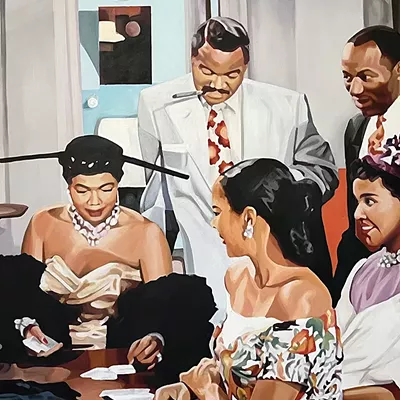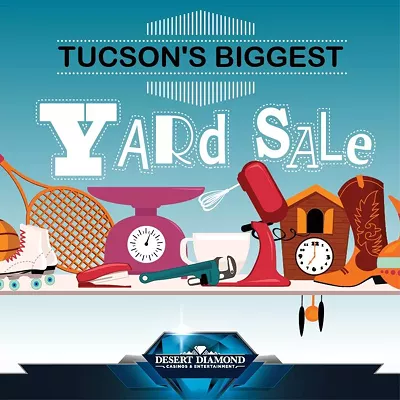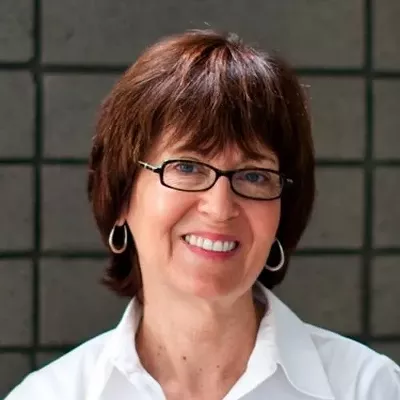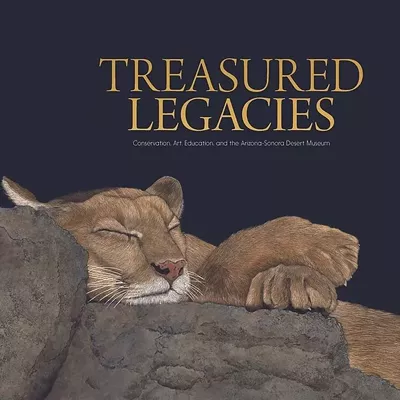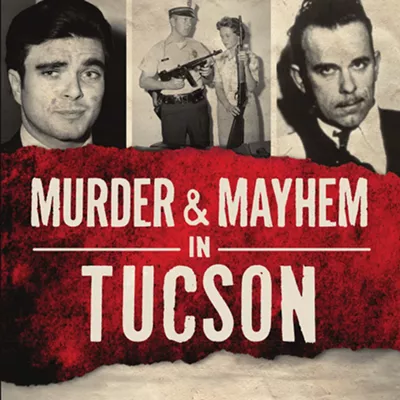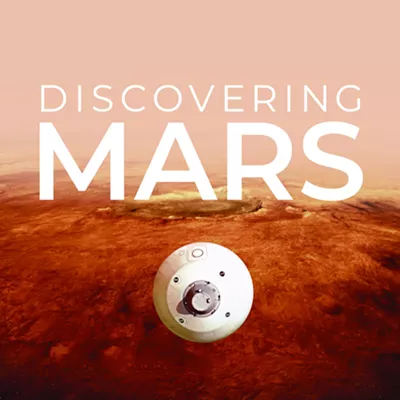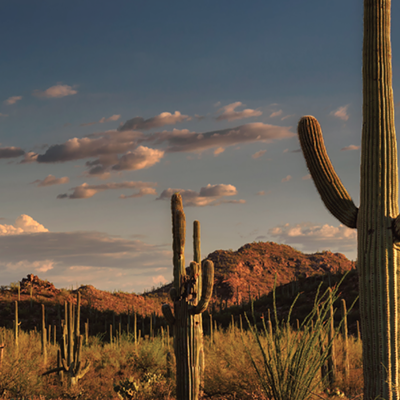Any time this week, you just may catch a glimpse of a Chilean poet "weaving" parts of Tucson into the UA Poetry Center, says the center's Annie Guthrie.
Cecilia Vicuña is setting out each day—along with local filmmaker Jonathan VanBallenberghe, Guthrie and an art graduate student—to visit trademark Tucson sites. Saguaro National Park West is on her list, and so are Barrio Historico and the Pascua Yaqui reservation. What exactly she's going to do at those places once she gets there is not entirely clear.
"It's hard for me to describe," acknowledges Guthrie, who's the curator of this weekend's Poetry Off the Page extravaganza, a celebration of everything new and groundbreaking in poetry. Vicuña's journeys around town will "will be a nontemporal performance," she offers, and have something to do with fabric.
Whatever Vicuña's artistic process turns out to be, VanBallenberghe will catch it on film. And by Saturday morning, Vicuña will install the weavings in the center's library, which is exhibiting artworks by four other poets as well.
Danielle Vogel is displaying clay swallows' nests, "stuffed with lines of discarded poetry," Guthrie says. Christine Hume will provide "sound pillows" with CDs inside. Poetry-lovers can rest their heads on the pillows and "hear her reciting, and other layers of sound." Jeff Clark has constructed "pieces made out of signatures from poets' books."
Amaranth Borsuk has created a digital book with no words. Only when you hold the book up to a camera in a nearby computer can you see any text.
"The works will fly onto the computer page like a 3-D reading," Guthrie explains.
You'll notice that no one here is even talking about old-fashioned poems on a page. That's the whole point: As the title has it, we're talking here about poems off the page.
Nowadays, Guthrie says, "Poets aren't just writing poetry. They're writing plays, doing performances. They're making movies. They're dancing. Poetry isn't just happening in a book."
Guthrie enlisted a platoon of media-mixing poets to come to town, and throughout the weekend, they'll provide all manner of avant-garde iterations on verse. Besides Vicuña's poetic city-weaving, there will be dancing onstage, dancing in movies, musical collaborations, poetic stage dramas and even chanting.
You can learn how to make poetic hybrids of your own at writing workshops at the symposium, which will also offer scholarly panels, performances and screenings. For $150 ($80 if you're a student), you can go to every single panel discussion on new multimedia poetry, every single performance and every single talk, from Friday night through Sunday afternoon. That gold-plated ticket will cover performances both nights as well as the movies, otherwise known as "poemfilms," that will screen at 1:30 p.m. on Sunday.
The art poets, including Vicuña, will give talks at 10:30 a.m. on Saturday about the art installations in the library. People without tickets can't get in over the weekend to see the art installations or hear the talks, but any business day, starting Monday, you can stop by the library to see the art for free; the exhibition runs until May 31. And VanBallenberghe's film eventually will go up on the Poetry Center's website.
If you don't want to spring for the whole shebang, you can go to the Friday night and Saturday night performances, both of them packed with barrier-breaking poets. Each show is $15. Vicuña herself will perform Friday night. But—here's the rub—it won't be about her weaving project. Instead, it will be something else entirely, what Guthrie calls a "poetry/sound hybrid performance."
The lesson: When it comes to Poetry Off the Page, expect the unexpected.
Here's the lineup at the evening performances.
Friday night at the UA Poetry Center, three daredevil poets will show off their genre-jumping skills. Christine Hume, the poet responsible for the talking pillows in the library, starts the evening off with Speech Talks Back, an "audio documentary of poetics," as Guthrie puts it. "She's "DJ-ing a sampling of world poetry."
Claudia Rankine will screen Undocumented and Here, the latest film in the long-running Situation Series, a collaboration with John Lucas. The movies are about "moments in contemporary culture." (Symposium participants who turn up for the opening reception at 5:30 p.m. get to see the four earlier films in the series, each one shown in a separate room.)
Vicuña will follow up with "sound and song and chant," Guthrie says, "an improvisational oral performance" that responds to place and time. All three women will hold a Q&A at the end of the evening.
Poets Theater, the Saturday evening show, begins at 6:30 at the Rogue Theatre. It takes its name from the poets' theater movement, which Guthrie says is thriving in San Francisco. Brent Cunningham, a poet on the San Fran scene, presents three short plays: The Event, Time's Machinery and The Gunfight. They're already written, Guthrie promises, but Cunningham likes to improvise, leaving some elements to chance. He also "likes to pick actors from the audience, and rehearse the plays onstage."
New York poet Julie Patton and jazz guitarist Paul Van Curen composed their piece "See Here" on the train on the way to Tucson. "It's a poetical musical performance," Guthrie says. "Julie wants the voyage and journey to be part of what she does." Patton herself predicted that the rhythms of the rails would "inform the air zones" in the work. The pair may also project images onto the stage backdrop.
K.J. Holmes of New York is a dancer, and Julie Carr of Colorado is a dancer and poet. Their work, lengthily titled "This is where we are (or take arms against a sea of troubles), an excerpt," is a "dialogue between body movement and poetry," Guthrie says. "They're calling it a writing dance performance." The duo will also have films projected behind them.
The Black Took Collective is a troupe of three poets, hailing from California and New York. Their "Betraying Blackness," the final performance of the evening, embraces nearly every genre.
"It's a multimedia performance, with writing on the stage and projections," Guthrie says. "It uses sound, video and image." A "political/poetical" work, it "challenges our racial consciousness." And, along the way, challenges our conception of poetry.

